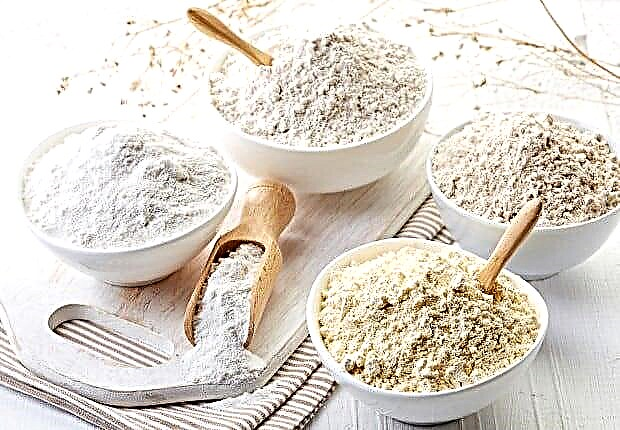The annual herb arugula is found all over the globe. An inconspicuous herb with a rich and pungent, slightly nutty flavor is used in cooking and has a number of beneficial properties. It contains a lot of vitamins and microelements that have a positive effect on the state of individual systems and organs, and on the entire body as a whole. In addition to being used in cooking, it is also used in medicine and cosmetology.
Calorie content and composition of arugula
The benefits of arugula are due to its rich chemical composition. The vitamins and macronutrients found in the greenery of the plant have a powerful effect on the body, enriching it with essential substances and strengthening the immune system.
100 g of arugula contains 25 kcal.
The nutritional value:
- proteins - 2, 58 g;
- fats - 0.66 g;
- carbohydrates - 2.05 g;
- water - 91, 71 g;
- dietary fiber - 1, 6 g.
Vitamin composition
Arugula greens contain the following vitamins:
| Vitamin | amount | Beneficial features |
| Vitamin A | 119 μg | Improves vision, promotes the regeneration of the skin and mucous membranes, forms bone and dental tissue. |
| Vitamin B1, or thiamine | 0.044 mg | Participates in carbohydrate metabolism, normalizes the functioning of the nervous system, improves intestinal peristalsis. |
| Vitamin B2, or riboflavin | 0.086 mg | Participates in the formation of red blood cells, improves metabolism, protects mucous membranes. |
| Vitamin B4, or choline | 15.3 mg | Regulates the body's metabolism. |
| Vitamin B5, or pantothenic acid | 0.437 mg | Promotes oxidation of carbohydrates and fatty acids, improves skin condition. |
| Vitamin B6, or pyridoxine | 0.073 mg | Strengthens the immune system and the nervous system, helps fight depression, participates in the assimilation of proteins and in the synthesis of hemoglobin. |
| Vitamin B9, or folic acid | 97 μg | Regenerates cells, takes part in protein synthesis, supports the healthy formation of the fetus during pregnancy. |
| Vitamin C, or ascorbic acid | 15 mg | Participates in the formation of collagen, improves skin condition, promotes healing of wounds and scars, restores cartilage and bone tissue, strengthens the immune system, and helps fight infections. |
| Vitamin E | 0.43 mg | Detoxifies and protects cells from damage. |
| Vitamin K | 108.6 mcg | Promotes normal blood clotting. |
| Vitamin PP, or nicotinic acid | 0.305 mg | Regulates lipid metabolism, normalizes cholesterol levels. |
| Betaine | 0.1 mg | It normalizes the acidity of the gastrointestinal tract, improves digestion, accelerates lipid oxidation, and promotes the absorption of vitamins. |
The greens also contain beta-carotene and lutein. The combination of all vitamins has a complex effect on the body, improving the functioning of organs and strengthening the immune system. Arugula will be useful for vitamin deficiency and restore vitamin balance.

© Agnes - stock.adobe.com
Macro and microelements
The composition of green arugula contains macro- and microelements necessary to maintain the normal functioning of the human body. 100 g of the product contains the following macronutrients:
| Macronutrient | Quantity, mg | Benefits for the body |
| Potassium (K) | 369 | Normalizes the work of the heart muscle, removes toxins and toxins. |
| Calcium (Ca) | 160 | Strengthens bone and dental tissue, makes muscles elastic, normalizes the excitability of the nervous system, and takes part in blood coagulation. |
| Magnesium (Mg) | 47 | Regulates the metabolism of proteins and carbohydrates, removes cholesterol, relieves spasms, improves bile secretion. |
| Sodium (Na) | 27 | Provides acid-base and electrolyte balance, regulates the processes of excitability and muscle contraction, strengthens the walls of blood vessels. |
| Phosphorus (P) | 52 | Participates in the formation of hormones, regulates metabolism, forms bone tissue, and normalizes brain activity. |
Trace elements in 100 g of arugula:
| Trace element | amount | Benefits for the body |
| Iron (Fe) | 1.46 mg | Participates in hematopoiesis, is part of hemoglobin, normalizes the functioning of the nervous system and muscles, fights fatigue and weakness of the body. |
| Manganese (Mn) | 0, 321 mg | Participates in oxidation processes, regulates metabolism, normalizes cholesterol levels, and prevents fat deposition in the liver. |
| Copper (Cu) | 76 μg | Forms red blood cells, participates in collagen synthesis, improves skin condition, helps to synthesize iron into hemoglobin. |
| Selenium (Se) | 0.3 mcg | Strengthens the immune system, slows down the aging process, prevents the development of cancerous tumors, has an antioxidant effect. |
| Zinc (Zn) | 0.47 mg | Participates in the metabolism of proteins, fats and vitamins, promotes the production of insulin, strengthens the immune system and protects the body from infections. |
Saturated Fatty Acids:
- lauric - 0, 003 g;
- palmitic - 0.072 g;
- stearic - 0, 04 g.
Monounsaturated fatty acids:
- palmitoleic - 0, 001 g;
- omega-9 - 0.046 g.
Polyunsaturated fatty acids:
- omega-3 - 0.17 g;
- omega-6 - 0, 132 g.
Benefits of arugula
Healing herb is recommended to be included in the diet for overweight people and diabetics. It has a beneficial effect on all organs and systems, helps to normalize metabolism, has an antioxidant effect, and removes toxins and toxins.
Biologically active substances that make up the greenery improve the functioning of the gastrointestinal tract. Arugula strengthens the walls of the stomach and intestines and helps relieve the symptoms of peptic ulcer and gastritis. Gastroenterologists recommend using the plant for people suffering from these diseases.
The antibacterial and anti-inflammatory effect of the herb, due to the presence of vitamin K in the composition, promotes wound healing and relieves the symptoms of skin diseases.
The plant strengthens the nervous system and helps fight depression. Arugula for breakfast energizes and saturates the body with the energy necessary for the full functioning of the body throughout the day.
Arugula normalizes cholesterol levels and increases hemoglobin, helps to cope with vascular diseases, improves blood circulation and normalizes blood pressure.
The spice is used for the prevention of cancer. Its microelements reduce the risk of developing cancerous tumors.
The plant has a diuretic and expectorant effect. The high content of vitamins helps to strengthen the immune system, enhances the body's ability to fight viruses and infections. The use of arugula is effective for coughs and colds.
Benefits for women
Arugula brings invaluable benefits to the female body. It is rich in folic acid, which is especially necessary during pregnancy for the full development of the fetus.
Vitamin A in greens is beneficial for healthy skin, hair and nails. Women will firstly appreciate the action of arugula to maintain a perfect appearance.
The plant is used in cosmetology, is a part of face and hair masks. Greens help moisturize and rejuvenate the skin. Vitamin K relieves puffiness, linoleic acid prevents fading and aging, oleic acid makes the skin elastic and elastic, gives it an even tone.
Arugula oil is indispensable in hair care. It strengthens the hair roots and structure, reduces hair loss, relieves dandruff and itchy scalp.

© Agnes - stock.adobe.com
Women use arugula to fight obesity and include the spice in a variety of diets. It helps to cleanse the body of toxins and toxins, normalizes metabolism, regulates water-salt balance and has a fat-burning effect.
Benefits for men
Delicious and healthy greens are also needed by the male body. It is rich in vitamins and microelements that are necessary for general health promotion. Physical and emotional stress depletes the supply of nutrients. Arugula saturates the body with vitamins and microelements.
The complex of B vitamins strengthens the nervous system and relieves emotional stress. Regular consumption of greens fills the body with energy and improves brain activity.
Arugula is considered a powerful aphrodisiac and improves potency. The composition of greens has a beneficial effect on the health of the genitourinary system.
Arugula salad should be part of a healthy diet. Regular consumption of greens will strengthen the immune system and have a preventive effect on all body systems.
Harm and contraindications
Arugula greens are safe for the body and practically have no contraindications. Consumption of the product in large quantities can be harmful to health. This can cause an allergic reaction in the form of skin rashes and nausea or diarrhea.
Arugula should be used with caution in people with urolithiasis. The microelements included in the composition can cause its aggravation.
Pregnant and lactating women are advised to consume the spice in small quantities as a flavoring agent.

© juliamikhaylova - stock.adobe.com
Overall, arugula is a safe product. Eating the leaves in moderation will benefit the body, strengthen immunity and protect against infections.









